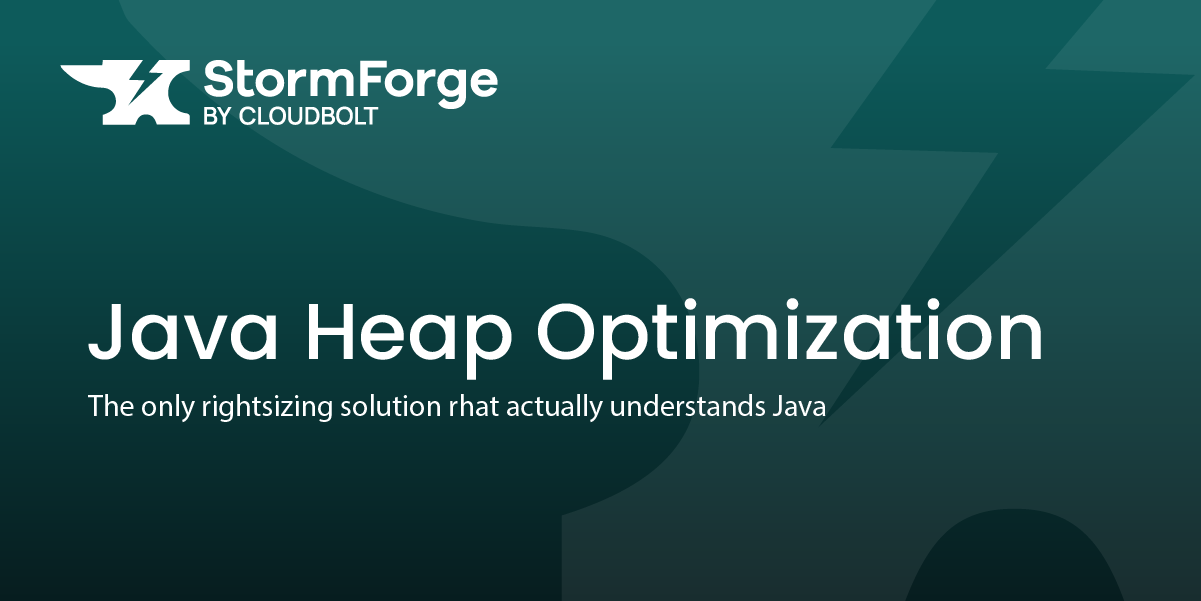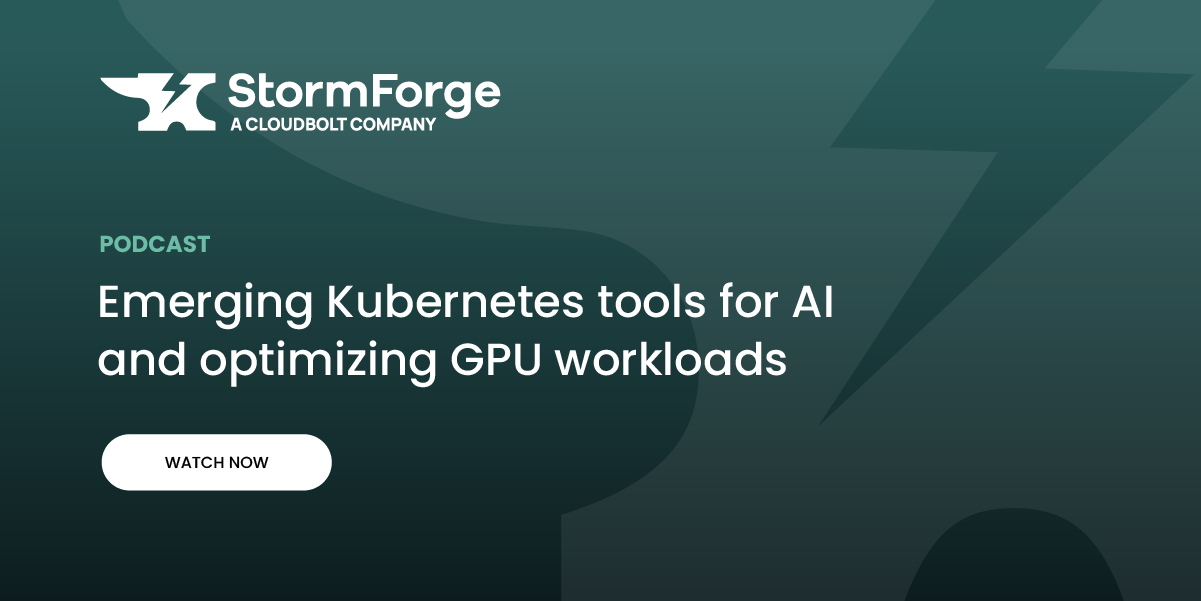Introduction #
According to Gartner, global cloud spend is expected to reach $495B in 2022. Cloud spend now makes up a significant portion of expenses for most organizations, even reaching 75 to 80% cost of revenues for some. Cloud also has a significant impact on the environment, with the cloud computing industry now having a greater carbon footprint than the airline industry.
Previous studies, including our StormForge 2021 survey, have shown that a significant percentage of cloud spend is wasted on over-provisioned resources. Reducing cloud waste can provide significant benefits for individual enterprises, and for environmental sustainability at a global level.
To learn more about cloud waste perceptions and experiences at the enterprise level, we surveyed 134 IT professionals with knowledge of their organization’s cloud spend. We found that cloud waste is recognized as a significant issue, and it’s a high priority for organizations to address.
Key Findings Include:
- Respondents know that their organization is wasting significant cloud resources, estimating that 47% of cloud spend is wasted, on average.
- Cloud spend, and correspondingly cloud waste, are increasing for 75% of organizations.
- Resource optimization and efficiency are high priorities for 70% of organizations.
- Security, automation, and reliability are the highest overall IT priorities.
Cloud Spend Is Still on the Rise... #
Cloud spend has been growing steadily, and analysts expect continued growth, upwards of 20% year-over-year. We asked respondents about future expenditures for their organizations, and we found that over 75% expected cloud spend to increase, with 26% saying it would increase by a lot. Less than 5% expected their cloud spend to decrease.
Notably, these results are very similar to our 2021 survey responses, revealing that cloud growth continues unabated despite the continuing pandemic and economic slump.
Do you expect your company’s cloud spend to increase, decrease, or stay the same over the next 12 months?
…and Cloud Waste Is Still Too High #
Respondents estimated that nearly half (47%) of their cloud spend is wasted on over-provisioned resources. This is also nearly identical to the result from last year’s survey (48%), confirming that the problem of cloud waste has still not been addressed.
What percentage of your organization’s cloud spend do you believe is wasted, i.e. spent on unused or idle resources?

38% of respondents estimated cloud waste in the 26-50% range, and 29% estimated cloud waste between 51% and 75%. Responses grouped by range:
Optimization is a High Priority #
Optimizing resource efficiency is seen as an important activity, with an overwhelming 93% of respondents saying that it was at least a medium priority, and 70% saying it was either a high priority or a very high priority.
This makes sense given both the growth and estimated waste in cloud spend, approximately 20% and 50%, respectively. As organizations scale their Kubernetes cloud environments in production, the impact of wasted resources becomes more apparent and painful. For some organizations cloud spend has grown to 75-80% of the cost of revenues, which is not a sustainable business model.
How high a priority is optimization of cloud resource efficiency/cloud cost reduction for your organization?
As part of our survey, we also wanted to understand which teams are most concerned with cloud efficiency and optimization. Unsurprisingly, SRE/Cloud Ops teams were the most concerned, followed closely by Platform Engineering and Software Engineering teams. Surprisingly, FinOps teams were at the bottom of the list, but this is most likely because many organizations still don’t have a dedicated FinOps function.
Which team(s) in your organization do you think care about cloud efficiency and optimization? Choose all that apply.
Silos, Manual Tuning, and Scaling Are Key Causes of Waste #
In order to better understand some of the key reasons for over-provisioning and cloud waste, we asked respondents how strongly they agreed with the following statements:
- Cloud and Kubernetes complexity cause us to over-provision our cloud resources.
- Organizational silos and lack of communication between teams results in cloud waste.
- Our application performance is not as good as it should be.
- Our engineering team has no incentive to allocate cloud resources efficiently.
- Our engineering team spends too much time on trial-and-error application tuning.
- Scaling challenges cause us to over-provision our cloud resources.
While each of these statements resulted in at least 35% overall agreement among respondents, the issues of organizational silos, trial-and-error application tuning, and scaling generated the strongest agreement.
How strongly do you agree or disagree with the following statements?
But Optimization Is Still Perceived to Be Difficult #
With cloud waste estimated at 47%, and optimization of resource efficiency apparently being such a high priority, it begs the question: Why aren’t more organizations working on optimization?
We asked respondents why optimization was viewed as a high priority, yet wasn’t being addressed as one, and found that 37% believe optimization is too difficult and time-consuming. Others (31%) stated that it’s more important to move quickly to the cloud, so consequently optimization takes a back seat. 22% say that they’re too early in their cloud or Kubernetes journey to worry about optimization.
Optimization is a challenge and priority that StormForge can efficiently and elegantly address. StormForge customers have found that machine learning and automation have significantly lowered the barriers to optimization. Solutions like StormForge make it easy to incorporate optimization into the standard DevOps lifecycle, both as part of pre-deployment preparedness and to ensure efficient auto-scaling after deployment. With these intelligent and largely automated capabilities, there is no reason for organizations to wait until cloud costs become an overwhelming expense.
Why is optimization not a higher priority?
Kubernetes Use #
Kubernetes complexity is frequently cited as a reason for cloud waste, so we wanted to learn more about organizations’ use of Kubernetes.
- We found that most organizations are using Kubernetes in production, with 47% using it in prod for more than a year.
- There is a wide range of implementation sizes, with 41% having between 10 and 50 clusters deployed, and 24% running more than 50 clusters across prod and non-prod environments.
- Kubernetes complexity is seen as a contributor to cloud waste, with 30% seeing it as a major contributor.
Is your organization using Kubernetes?
How many Kubernetes clusters do you have deployed across all environments (prod & non-prod)?
If you are currently using Kubernetes, do you believe the complexity of Kubernetes contributes to your organization’s cloud waste?
Kubernetes and Observability Tools #
We were interested to learn which cloud services were used most commonly for running Kubernetes, and also which observability tools were most used for monitoring Kubernetes environments.
- For running Kubernetes environments, Amazon is in the lead, with 39% of organizations using EKS, followed by Google (31%), Azure (29%), and OpenShift (29%).
- In terms of observability tools being used to monitor Kubernetes environments, the open source tool Prometheus is predominant, with 37% using it, followed by commercial tools Elastic (26%), Datadog (24%), New Relic (24%) and Splunk (24%).
What services are you using to run your Kubernetes environment? Check all that apply.
What services are you using to run your Kubernetes environment? Check all that apply.
Top Overall Priorities: Security, Automation, Reliability #
To capture the top overall priorities for IT organizations in 2022, the survey asked respondents to choose their top three from the list below. Unsurprisingly, security, privacy and compliance (as a combined category) was number one. Automating work and reducing toil was number two, while improving system reliability was a close third.
If you had to pick your team’s top three priorities from the following list, what would they be? Please choose three.
We also were interested in understanding how priorities differed among different teams. While security, privacy and compliance (combined) is among the top three priorities for most roles, the data also shows that:
- Addressing the IT skills and resource gap is an important priority for IT executives.
- Automation is considered especially important by SRE and platform engineering teams.
- Improving system reliability is important to multiple groups, including IT executives, platform engineering, SRE, and FinOps teams.
Demographics: Job Function #
We surveyed 134 IT professionals in July of 2022, including a mix of job functions as shown below. Platform Engineering, Software Engineering/Dev, SRE/Performance, and IT executives were well-represented, while a smaller number of Product Owners and FinOps professionals also responded.
Which of the following is the closest fit for your job function/team?
Optimization Powered by Machine Learning is Key for Reducing Cloud Waste #
Our survey identified three of the primary root causes of cloud waste to be: organizational silos, time-consuming manual tuning, and scaling challenges. While these may seem like major hurdles to overcome, optimization solutions that are powered by machine learning, like StormForge, are purpose-built for solving exactly these issues.
By adhering to a science-based approach, optimization solutions take emotions out of the equation and break down barriers between teams. Solutions like StormForge provide the answer in the form of optimized recommendations and automated action based on intelligent analysis of the data.
StormForge also automates the application tuning process using a process of rapid experimentation. Whereas a human may be able to run and analyze one performance test per week, StormForge can test, analyze and tune an application’s configuration dozens, or even hundreds, of times each evening. This frees and empowers your software engineers to focus on innovation.

Finally, machine learning can be used to analyze observability data from production environments to recommend and implement configuration changes in real-time, reducing over-provisioning while still ensuring application performance that meets SLAs. This ensures that applications perform as needed, using the fewest resources possible and minimizing waste, even while scaling up and down to meet user demand.

Experience StormForge Today #
StormForge makes it easy to resolve the cloud waste issue. Getting started is as easy as 123.
01
Talk to a CKA
We’ll connect you with a CKA who will learn about your current Kubernetes configuration then show you a demo of the StormForge Platform.
02
Take a Test Drive
We’ll help you perform a trial or proof-of-concept in your environment, so you can see the value for your applications.
03
Satisfy Both Cost & Performance Goals
Experience increased development velocity, improved app performance, and cloud cost savings by more than 30% guaranteed!


